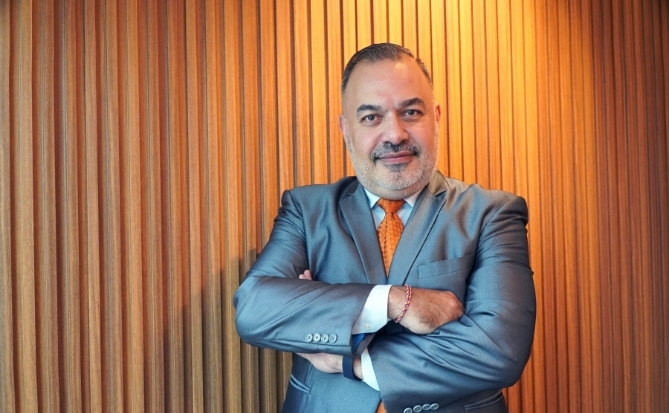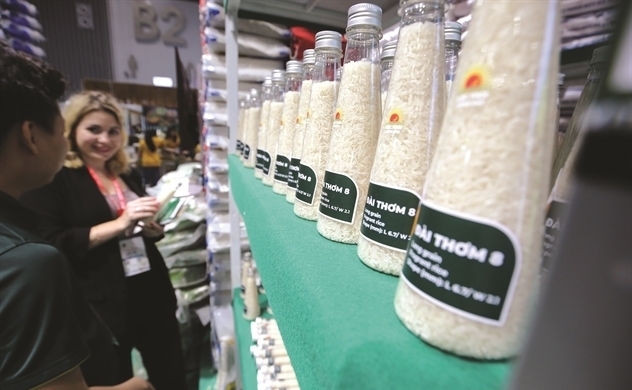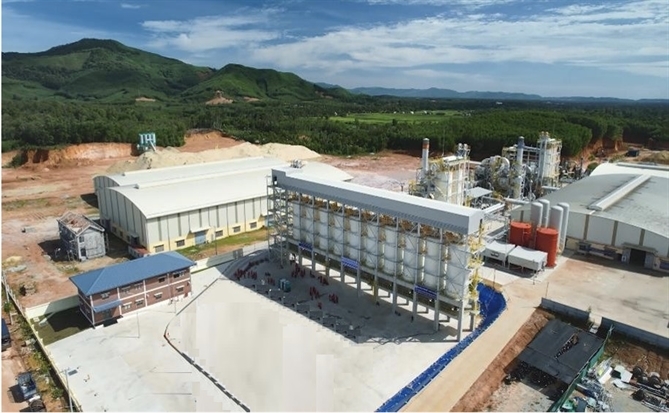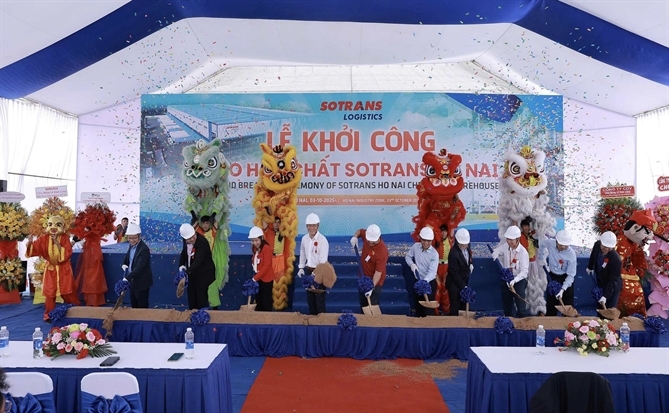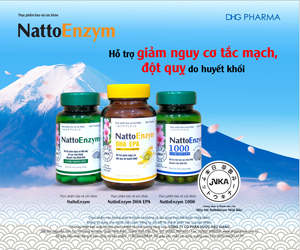Act green, don't talk green
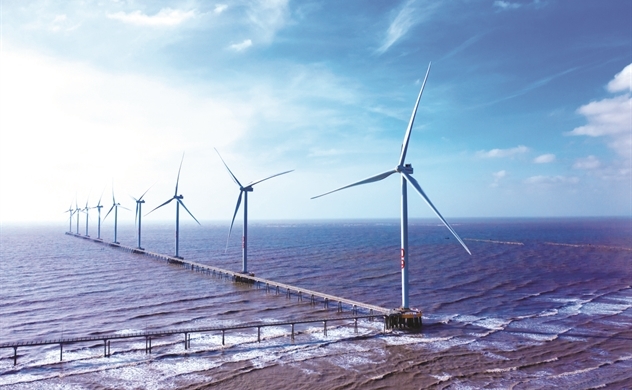
View of a wind farm in Tra Vinh province.
In its latest report, the United Nations (UN) has warned about the risk of countries falling short of the Sustainable Development Goals (SDGs) by 2030. Precisely, the countries' efforts to adopt and implement the SDGs have been reduced due to the impact of the Covid-19 pandemic, the financial crisis, and the energy crisis caused by the conflict in Ukraine.
Notably, "developing" countries are dealing with problems, such as weak economic growth, rising inflation, severe supply chain disruptions, and rising debt, which sharply reduces job opportunities, financial distress, and economic instability. Therefore, it is the right time for governments, policymakers, and businesses to take “actionable plans” rather than deliver "impracticable plans" to recover these problems.
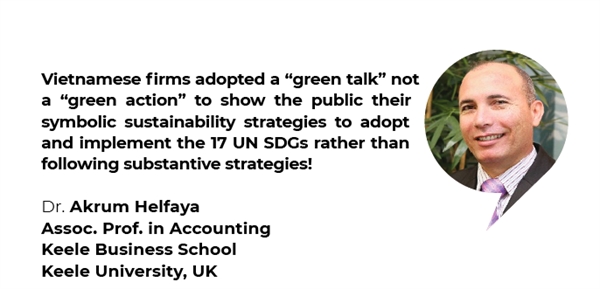 |
Vietnam joined the United Nations on 20 September 1977 to receive support for war reconstruction and humanitarian assistance. In May 2017, Vietnam released its National Action Plan (NAP) to show the effort of the Government to implement the Vietnam SDGs (VN SDGs). It was promulgated as per Decision 633/QD-TTg dated 10 May 2017 of the Prime Minister, in which the global goals of Vietnam towards 2030 were set, including 115 specific targets.
Predominantly, the NAP was categorized into six intervention dimensions, including:
- Guiding the development of legal frameworks and policies on sustainable consumption and production.
- Promoting sustainable production.
- Greening the supply system.
- Promoting the sustainable export market.
- Changing consumption practices and supporting sustainable lifestyles.
- Advancing 3R (reduce, reuse, recycle) practices.
The Vietnamese National Action Plan (NAP) has been implemented in the correct direction. For instance, in 2016, Vietnam started to commit to the 17 UN SDGs; however, the ranking was much below the average, at 88th place.
Since 2017, the Vietnamese rank on the index has considerably improved, because of the implementation of NAP. Additionally, Vietnam was one of 163 countries assessed in the 2022 SDG Index. It was ranked in 55th place with an overall index score of 72.8, the same score as in 2021. Yet, its ranking was the 51st, which suggests that the average score among all nations has increased.
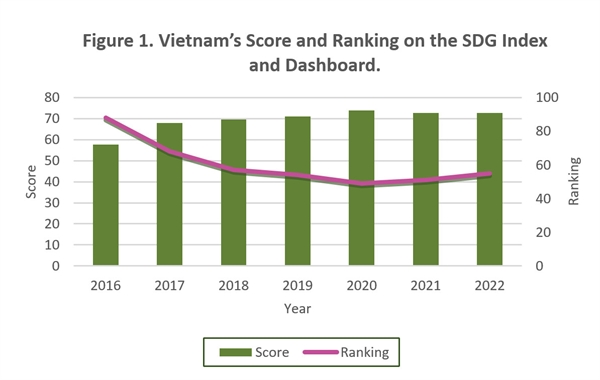 |
Since 2015, East and South Asia have made good progress in achieving the SDGs than any other region adopting sustainable goals. Among these Southeast Asian countries, Vietnam has been ranked the 2nd country with the highest score on the SDG Index, just below Thailand for both 2021 and 2022, as seen in Figures 2 & 3 below.
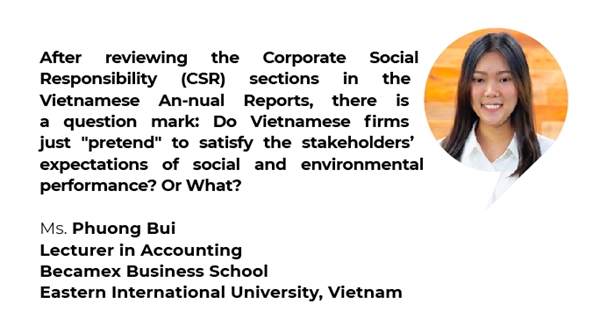 |
We investigated the status quo of adopting and implementing the 17 UN SDGs by the top 50 Vietnamese-listed companies in both the Ho Chi Minh Stock Exchange (HOSE) and the Hanoi Stock Exchange (HNX) from 2015 to 2021 by analysing the SDGs disclosure in both annual reports (AR) and standalone sustainability reports (SR).
These 100 firms represent 13 industrial sectors including accommodation and food services; agriculture production; construction and real estate; finance and insurance; food & beverage; health care; information and technology; manufacturing; mining, quarrying, and oil and gas extraction; natural gas distribution; transportation and warehousing; utilities; and wholesale trade in which the construction and real estate sector represents 32% of total firms.
At this stage, 84% of the sampled firms are just partially engaging with the 17 SDGs (only focusing on specific goals) such as poverty, economic growth, and climate change. This suggests a general lack of "actual implementation" of SDGs among Vietnamese firms.
Ms. Phuong Bui said: “After reviewing the Corporate Social Responsibility (CSR) sections in the Vietnamese Annual Reports, there is a question mark: Do Vietnamese firms just "pretend" to satisfy the stakeholders’ expectations of social and environmental performance? Or What?”
Additionally, at the industry level, the corporate SDGs disclosure differs between corporations because of their own business strategies rather than the nature of their industrial sectors. Furthermore, firms operating in high environmental sensitivity industries are keen to disclose more SDG-related information compared to medium and low environmental sensitivity industries. Unsurprisingly, many companies operating in the energy sector (e.g., natural gas distribution and utilities) avoid disclosing SDG-related information to protect their legitimacy and avoid any litigation costs.
A review of ARs and SRs indicated that companies intend to primarily focus on improving poverty, economic growth, and climate change, as illustrated by the following statements.
Simultaneously, 8% of sampled firms fully committed to SDGs (including STB, VNM, VCS, PDR, NTP, BVH, TNG, and PVD), proving that Vietnamese firms have been aware of sustainable development and are starting to incorporate with the SDGs disclosure.
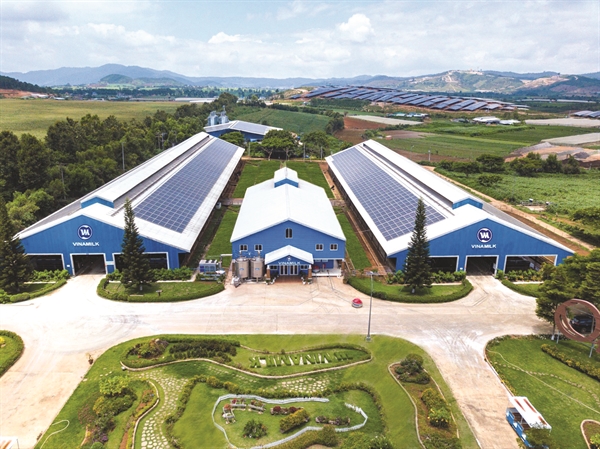 |
Surprisingly, there is considerable inconsistency in adopting and disclosing SDGs information by the Top 100 Vietnamese-listed firms. For instance, some firms have SDG-related information in the CEO/chairman letter. Yet, there is no information indicating the risks and opportunities or connecting Vietnamese firms’ KPIs to the SDGs.
There is also no information indicating the risks and opportunities or connecting Vietnamese firms’ KPIs to the SDGs, suggesting that many Vietnamese managers decided not to disclose SDG information in corporate reports. Moreover, some firms (e.g., OCH, HAG, and KDH) show their commitment to the SDGs by disseminating some information in their CEO/Chairman letters in 2015. However, no information was mentioned in the 2021 CEO/Chairman letters.
Dr. Akrum Helfaya said: “Vietnamese firms adopted a “green talk” not a “green action” to show the public their symbolic sustainability strategies to adopt and implement the 17 UN SDGs rather than following substantive strategies!”
Throughout the analysis of the adopting and implementing the 17 UN SDGs by the top 100 Vietnamese listed firms, there are some implications for Vietnamese firms, policymakers, regulators, investors, civil society, media, and environmental activists in turn.
Vietnamese firms should use SDGs disclosure as 'a strategic tool' to strengthen their legitimacy and truly satisfy stakeholders’ expectations.
Firms operating in high environmental sensitive industries should disclose more SDG-related information to strengthen their legitimacy as well as build stakeholder trust.
Vietnamese government, practitioners, policymakers, and standards setters should support companies in adopting and embedding the SDGs into their business models and strategies by providing them a consistent and binding framework for the contents/templates of disclosing useful information about their achievement levels of the Vietnamese NAP of the SDGs.
Vietnamese civil society, media, and environmental activists should play an active role to monitor and oversee the Vietnamese firms’ action plans to achieve these SDGs and improve the welfare of the Vietnamese people.

 TIẾNG VIỆT
TIẾNG VIỆT 
